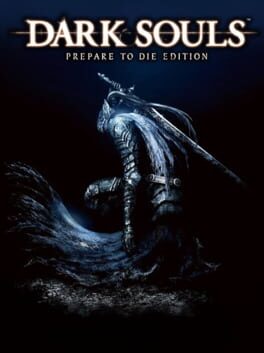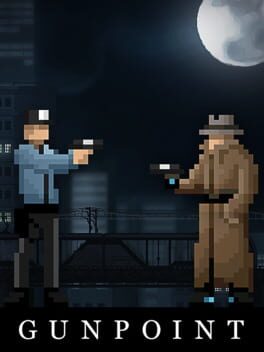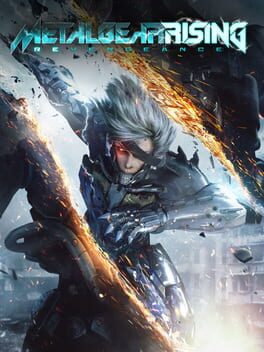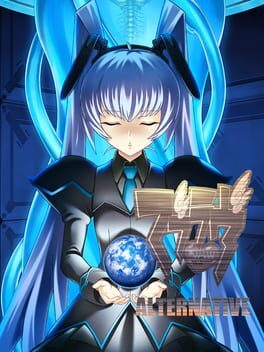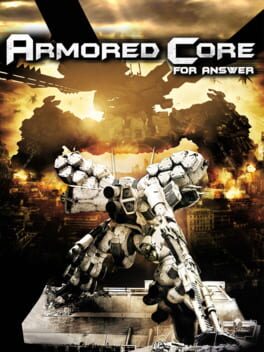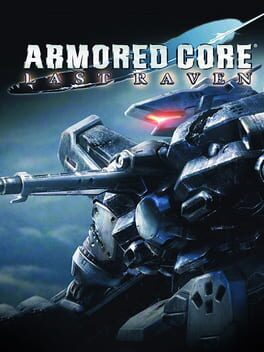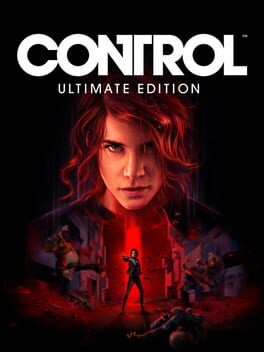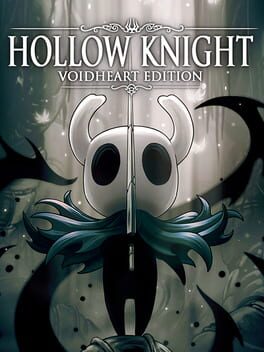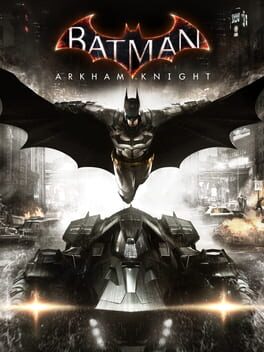BewQre
12 reviews liked by BewQre
This review contains spoilers
In a world where your choices could be without meaning as death is merely a means to living as opposed to ending life itself, where do the values of humanity lie?
You're undead but you exist to save and destroy humanity, or do you? This world is as nihilistic as it is cynical, but where do you fit into this world that seemingly wants you to fail your objective relentlessly.
Your existence doesn't specifically have a meaning, your actions have no bearing whatsoever. Once you finish the game, you aren't given the satisfaction of conclusion but you are thrown into the world once again with NG+, so what does your journey really entail?
Are you supposed to just give up on your objective in saving or ruining the world (whichever you choose) and finally put the game away, or do you struggle endlessly to achieve what you set out to do and link the fire or quench the flames.
The world of Dark Souls is an endless loop and you are just there to experience it, your actions have no bearing on the world as everything will just revert to its original "default" be that your own actions or the life that inhabits it.
This game is utterly pointless and only when you realize that is when you reach your conclusion.
You're undead but you exist to save and destroy humanity, or do you? This world is as nihilistic as it is cynical, but where do you fit into this world that seemingly wants you to fail your objective relentlessly.
Your existence doesn't specifically have a meaning, your actions have no bearing whatsoever. Once you finish the game, you aren't given the satisfaction of conclusion but you are thrown into the world once again with NG+, so what does your journey really entail?
Are you supposed to just give up on your objective in saving or ruining the world (whichever you choose) and finally put the game away, or do you struggle endlessly to achieve what you set out to do and link the fire or quench the flames.
The world of Dark Souls is an endless loop and you are just there to experience it, your actions have no bearing on the world as everything will just revert to its original "default" be that your own actions or the life that inhabits it.
This game is utterly pointless and only when you realize that is when you reach your conclusion.
Gunpoint
2013
If anyone has read my MGS4 review, you must be aware that Metal Gear Solid 4 poses the question, “What if we were robbed off our senses?” (I deleted it now lol, but yeah you basically need to know that MGS4 is all about how your "sense" is being suppressed by the system)
Revengeance completely flips it over its head and inquires the opposite, “What if we let our free will, our feelings, our “sense”, overflow without any restrictions? What if everyone was allowed to do whatever the fuck they wanted?”
In Metal Gear Rising, a few years have passed since the world got rid of the “robotic ways” of waging war. Of course, it hardly means that the society is any better. In fact, it’s worse than ever before. There is nothing to hold back one’s free will. Crime rates are higher than ever before. Criminals are the most dangerous they have ever been. Of course the police the exists, but they are nothing but pawns controlled by something that pertains a much stronger will. World Marshal Inc. is now the largest PMC company in the world, they control everything, whilst taking advantage of one’s free will. The person in question does not care because their wish is being granted so they will happily do what they are being told to.
The characters in Metal Gear Rising are maniacs, they enjoy war and violence in one way or the other, it satisfies their instincts. In this society, the one with the “stronger” sense, the stronger will, will persist. The weak will perish. Characters like Blade Wolf are exploited by characters like Mistral, someone with a stronger “sense” presides over the weaker. Characters like Sundowner who think war and violence is something beautiful, and fun, in an almost passionate way. That “sense” of passion has led him to being as powerful and dominant he is. Characters like Monsoon, who think in this society it’s “kill or be killed”. They all have embraced their animalistic desire and instincts. Is it fair to even call them Humans anymore? How does that make them any better than Animals infact?
There are also characters like Jetstream Sam, someone who was a descendent from a strict Japanese heritage, he had very strong feelings for his family’s ideals, rules and heritage. But all of it was shattered once he met someone with a much stronger “sense” for what he believes in, Senator Armstrong. He was unable to defeat him with his “ideals, rules and heritage”. What he believed in for his entire life shattered in the blink of an eye was a major hit on Sam’s psyche. Notice his theme?
“I don’t know the season
Or what is the reason
I’m standing here holding my blade”
He doesn’t even know what he is fighting for anymore. This is what leads him to conform to Armstrong until he re-discovers himself. This is a testament to how one’s rules, ideals or heritage nourished through generations mean nothing in this fucked up society, if the force with which you enforce your will, your “sense” upon the other is strong enough.
Metal Gear Rising aims to showcase the chaotic side of humanity. The cycle of Violence, Vengeance, Hence “Re-Vengeance”. The Strong flourish, the weak either conform, or perish. This is what happens when you allow free will and our “sense” to flourish too much.
Evident through the game’s direction and presentation of it’s themes being ironically over the top, ridiculous and chaotic. Much more than previous Metal Gear games. The “Memes” that we post on the internet are a product of one’s “chaotic” feelings to make fun of something. The fact that Metal Gear Rising is one the most meme-d games to death is no coincidence, but again, entirely intentional.
Metal Gear Rising does not intend to contradict MGS4’s message or anything, rather both are a nuanced portrayal of how “too much” of about anything can be hazardous. What sets us apart from animals is our ability to control our instincts, desires and reason. That is another very important aspect to what makes us Human.
Revengeance completely flips it over its head and inquires the opposite, “What if we let our free will, our feelings, our “sense”, overflow without any restrictions? What if everyone was allowed to do whatever the fuck they wanted?”
In Metal Gear Rising, a few years have passed since the world got rid of the “robotic ways” of waging war. Of course, it hardly means that the society is any better. In fact, it’s worse than ever before. There is nothing to hold back one’s free will. Crime rates are higher than ever before. Criminals are the most dangerous they have ever been. Of course the police the exists, but they are nothing but pawns controlled by something that pertains a much stronger will. World Marshal Inc. is now the largest PMC company in the world, they control everything, whilst taking advantage of one’s free will. The person in question does not care because their wish is being granted so they will happily do what they are being told to.
The characters in Metal Gear Rising are maniacs, they enjoy war and violence in one way or the other, it satisfies their instincts. In this society, the one with the “stronger” sense, the stronger will, will persist. The weak will perish. Characters like Blade Wolf are exploited by characters like Mistral, someone with a stronger “sense” presides over the weaker. Characters like Sundowner who think war and violence is something beautiful, and fun, in an almost passionate way. That “sense” of passion has led him to being as powerful and dominant he is. Characters like Monsoon, who think in this society it’s “kill or be killed”. They all have embraced their animalistic desire and instincts. Is it fair to even call them Humans anymore? How does that make them any better than Animals infact?
There are also characters like Jetstream Sam, someone who was a descendent from a strict Japanese heritage, he had very strong feelings for his family’s ideals, rules and heritage. But all of it was shattered once he met someone with a much stronger “sense” for what he believes in, Senator Armstrong. He was unable to defeat him with his “ideals, rules and heritage”. What he believed in for his entire life shattered in the blink of an eye was a major hit on Sam’s psyche. Notice his theme?
“I don’t know the season
Or what is the reason
I’m standing here holding my blade”
He doesn’t even know what he is fighting for anymore. This is what leads him to conform to Armstrong until he re-discovers himself. This is a testament to how one’s rules, ideals or heritage nourished through generations mean nothing in this fucked up society, if the force with which you enforce your will, your “sense” upon the other is strong enough.
Metal Gear Rising aims to showcase the chaotic side of humanity. The cycle of Violence, Vengeance, Hence “Re-Vengeance”. The Strong flourish, the weak either conform, or perish. This is what happens when you allow free will and our “sense” to flourish too much.
Evident through the game’s direction and presentation of it’s themes being ironically over the top, ridiculous and chaotic. Much more than previous Metal Gear games. The “Memes” that we post on the internet are a product of one’s “chaotic” feelings to make fun of something. The fact that Metal Gear Rising is one the most meme-d games to death is no coincidence, but again, entirely intentional.
Metal Gear Rising does not intend to contradict MGS4’s message or anything, rather both are a nuanced portrayal of how “too much” of about anything can be hazardous. What sets us apart from animals is our ability to control our instincts, desires and reason. That is another very important aspect to what makes us Human.
Muv-Luv Alternative
2006
Bloodborne
2015
As majestic, thoroughly horrifying, & rewarding in its brutal, relentless gameplay that's complemented by a Victorian era premise of a world on the verge of death as its brilliant in its use of that premise as a backdrop for heart-wrenching, tragic stories that all tie to the endgame boss through meticulous & intricate lore that flips the world upside down & shows different sides to the spectrum, revealing how the blood crazed beasts we once thought of as merciless, wretched animals, are nothing but victims of an upper system ruled by The Great Ones & a disease that plagued the streets of Yharnam. What makes this gem of a game special is how it slowly, but subtly peels off layers of its core, & turns from a game of beast hunting to replacing God himself to end the Nightmare. That change in storytelling feels so sudden and jarring on paper, but Miyazaki made it work and it resulted in what's one of the best, most well crafted games ever made that'll leave an everlasting impact on its players
NieR: Automata
2017
The Beginner's Guide
2015
This review contains spoilers
Recommended by gomit as part of this list.
When I was in middle school, I pirated a copy of RPG Maker VX Ace and said "I'm going to make a video game." My very first project was a joke game based on those MLG memes (the air horns, the crosshairs, "MOM GET THE CAMERA!", the works) and it was rough. Even in the limited, easy-to-use confines of RPG Maker, I could barely figure out how to program a map transition, or even set up a basic variable flag. I managed to program one boss fight and gave up. Over the years, ideas would come and go, only ever ending up half-baked ideas that were excuses to try something new, like writing music or learning digital art. An isometric Bully-clone. A Persona 3-style dungeon crawler. The mandatory Quirky Earthbound-Inspired RPG that all indie developers make at some point. A cosmic-horror JRPG with anime girls. All of these ideas living in the margins of sketchbooks or as slap-dash digital sprites drawn with my shitty dollar store mouse. It would take me until I was 20 (7 whole years from the day I pirated that copy of VX Ace!) to actually publish my first completed project. I would feign to call myself a "game developer", but I bring this up because I think it's a substantial part of my life that colors my view of The Beginner's Guide.
The Beginner's Guide is an hour long interactive experience that serves as a commentary on both artist and audience, and the relationship between the two. Before the twist revealed in the second to last chapter of the game, the use of this fictional developer (Coda), their oeuvre, and the Director's Commentary provided by the psuedo-fictional caricature of The Beginner Guide's own creator (Wreden) weave this tale of artistic expression and burnout through the medium most infamous for how it chews up and spits out its creators: video games. The arc we witness of finding the joy in creation, fixating on some kind of platonic ideal for your work, before spiraling and losing your passion, realizing that you're burnt out and that throwing yourself in the grinder day-in day-out isn't going to give you the results you want is something that I as a struggling creative myself can sympathize with.
But after that twist is revealed, that Coda didn't burn out from creative strain, but from being subject to an audience that wanted to live vicariously through his work and pick apart his very being, there is a much more universal struggle revealed: the need for validation and external approval, and the purpose of art. Wreden using Coda's work to validate himself by presenting it to other people, despite Coda's wish to keep his work private; Wreden modifying Coda's games to provide more concrete meaning so as to fit in-line with Werden's sensibilities, even when it was established in an earlier chapter that Coda believed that games didn't need to be so objective or finished; Werden trying so hard to understand Coda's work that he armchair analyzes a creative, when Coda never meant nor really wanted his work to be so emotionally open and raw. The age of hours-long YouTube video essayists and Armchair Critics on Media Logging Websites (wink wink nudge nudge) have made all of this behavior resonate years after release, of people trying to gain validation by analyzing art and showing that they get it, using media as a springboard to share their own ideas and struggles, gain their own audience via their ability to read into art, commodifying the idea of the creative and their struggles to make their body of work seem so much more unique and genuine and meaningful. Publishing anything runs that risk but nowadays putting even the slightest fragment of your soul into something potentially thousands if not millions can observe and pick apart and psychoanalyze borders on cosmic horror.
It begs the question of what art and self-expression is supposed to do for an audience. Do we really know an artist just because they made something emotionally vulnerable? Do we know them even if the art isn't overtly personal? Is it bad to not look into a work? Is it bad to look too much into something? How much should we analyze of an author's persona, and at what point does it stop being media analysis and shift into armchair psychology? That last minute twist raises a lot of tough questions about how we as consumers engage with art and what makes it work so well is that the twist doesn't invalidate the first 95% of the game. It manages to be about two conflicting subjects without really cancelling each other out with the questions being raised by both halves of the game, and as both artist and critic, I don't have any real answers for the conundrums it presents. Would it have been better to look at this as a metaphor for Werden and his release of Stanley Parable, or is that doing exactly what the Werden in Beginner's Guide did by trying to read into someone's personal life based solely on their published work? Am I wrong to have tried to connect this piece of art to my own life experiences, or did it help enhance my enjoyment? Am I engaging with this medium correctly by writing all these words? Would I ever want this to happen to me and my own body of work?
Who knows.
When I was in middle school, I pirated a copy of RPG Maker VX Ace and said "I'm going to make a video game." My very first project was a joke game based on those MLG memes (the air horns, the crosshairs, "MOM GET THE CAMERA!", the works) and it was rough. Even in the limited, easy-to-use confines of RPG Maker, I could barely figure out how to program a map transition, or even set up a basic variable flag. I managed to program one boss fight and gave up. Over the years, ideas would come and go, only ever ending up half-baked ideas that were excuses to try something new, like writing music or learning digital art. An isometric Bully-clone. A Persona 3-style dungeon crawler. The mandatory Quirky Earthbound-Inspired RPG that all indie developers make at some point. A cosmic-horror JRPG with anime girls. All of these ideas living in the margins of sketchbooks or as slap-dash digital sprites drawn with my shitty dollar store mouse. It would take me until I was 20 (7 whole years from the day I pirated that copy of VX Ace!) to actually publish my first completed project. I would feign to call myself a "game developer", but I bring this up because I think it's a substantial part of my life that colors my view of The Beginner's Guide.
The Beginner's Guide is an hour long interactive experience that serves as a commentary on both artist and audience, and the relationship between the two. Before the twist revealed in the second to last chapter of the game, the use of this fictional developer (Coda), their oeuvre, and the Director's Commentary provided by the psuedo-fictional caricature of The Beginner Guide's own creator (Wreden) weave this tale of artistic expression and burnout through the medium most infamous for how it chews up and spits out its creators: video games. The arc we witness of finding the joy in creation, fixating on some kind of platonic ideal for your work, before spiraling and losing your passion, realizing that you're burnt out and that throwing yourself in the grinder day-in day-out isn't going to give you the results you want is something that I as a struggling creative myself can sympathize with.
But after that twist is revealed, that Coda didn't burn out from creative strain, but from being subject to an audience that wanted to live vicariously through his work and pick apart his very being, there is a much more universal struggle revealed: the need for validation and external approval, and the purpose of art. Wreden using Coda's work to validate himself by presenting it to other people, despite Coda's wish to keep his work private; Wreden modifying Coda's games to provide more concrete meaning so as to fit in-line with Werden's sensibilities, even when it was established in an earlier chapter that Coda believed that games didn't need to be so objective or finished; Werden trying so hard to understand Coda's work that he armchair analyzes a creative, when Coda never meant nor really wanted his work to be so emotionally open and raw. The age of hours-long YouTube video essayists and Armchair Critics on Media Logging Websites (wink wink nudge nudge) have made all of this behavior resonate years after release, of people trying to gain validation by analyzing art and showing that they get it, using media as a springboard to share their own ideas and struggles, gain their own audience via their ability to read into art, commodifying the idea of the creative and their struggles to make their body of work seem so much more unique and genuine and meaningful. Publishing anything runs that risk but nowadays putting even the slightest fragment of your soul into something potentially thousands if not millions can observe and pick apart and psychoanalyze borders on cosmic horror.
It begs the question of what art and self-expression is supposed to do for an audience. Do we really know an artist just because they made something emotionally vulnerable? Do we know them even if the art isn't overtly personal? Is it bad to not look into a work? Is it bad to look too much into something? How much should we analyze of an author's persona, and at what point does it stop being media analysis and shift into armchair psychology? That last minute twist raises a lot of tough questions about how we as consumers engage with art and what makes it work so well is that the twist doesn't invalidate the first 95% of the game. It manages to be about two conflicting subjects without really cancelling each other out with the questions being raised by both halves of the game, and as both artist and critic, I don't have any real answers for the conundrums it presents. Would it have been better to look at this as a metaphor for Werden and his release of Stanley Parable, or is that doing exactly what the Werden in Beginner's Guide did by trying to read into someone's personal life based solely on their published work? Am I wrong to have tried to connect this piece of art to my own life experiences, or did it help enhance my enjoyment? Am I engaging with this medium correctly by writing all these words? Would I ever want this to happen to me and my own body of work?
Who knows.
